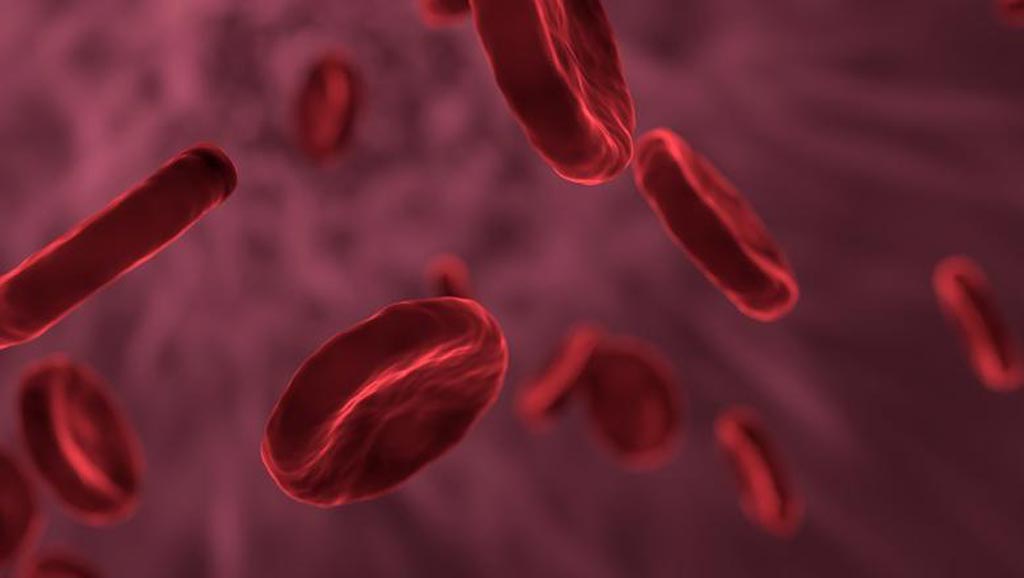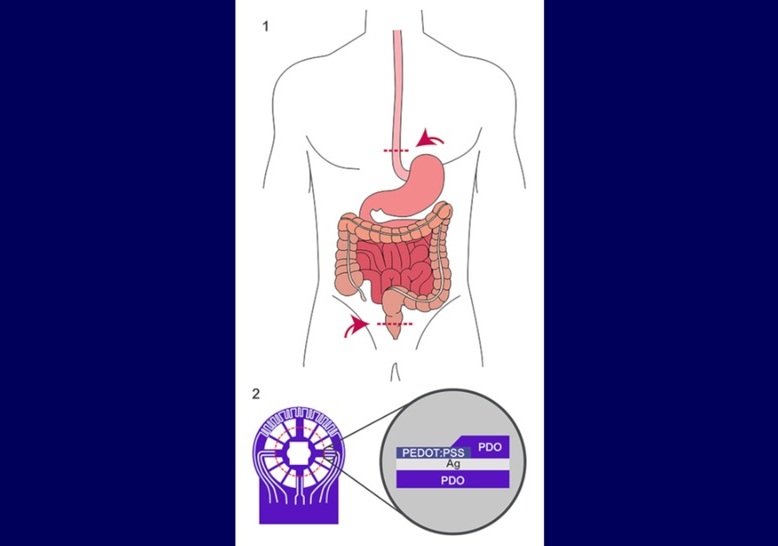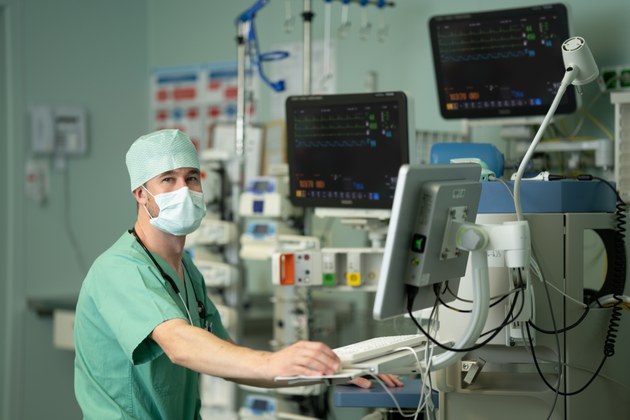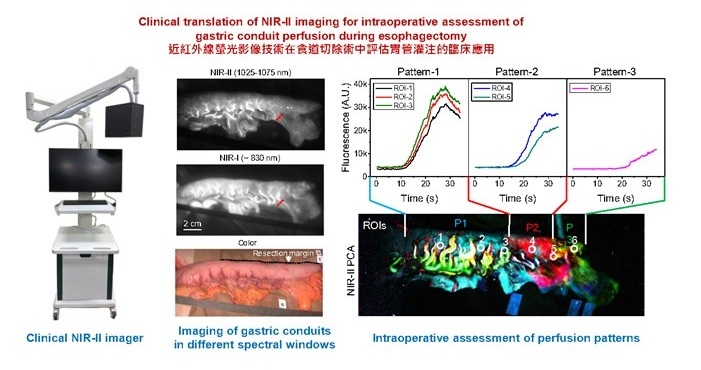ICU Bloodstream Infections Reduced across the UK
|
By HospiMedica International staff writers Posted on 03 Oct 2019 |

Image: Statistics from a new study show bloodstream ICU infections in the UK have dropped drastically (Photo courtesy of 123rf.com).
Bloodstream infections acquired in intensive care units (ICUs) across the United Kingdom dropped by 80% between 2007 and 2012, claims a new study.
Researchers at King’s College London (KCL; United Kingdom), Guy's and St Thomas' NHS Foundation Trust (London, United Kingdom), and the Intensive Care National Audit and Research Centre (ICNARC; London, United Kingdom) conducted a study that collected and analyzed data on Methicillin-Resistant Staphylococcus aureus (MRSA), C. difficile, and vancomycin-resistant Enterococcus (VRE) infection from 1,189,142 patients admitted to all 276 NHS adult ICUs across England, Wales and Northern Ireland from 2007 to 2016.
The results showed that MRSA admissions (per 1,000 patients) decreased from 38.8 to 13.1, and acquisitions decreased from 25.4 to 4.1; C. difficile admissions decreased from 10.6 to 4.2, and acquisitions decreased from 11.1 to 3.5; on the other hand, VRE admissions and acquisitions increased from 1.9 to 5.3 and 1.5 to 5.9, respectively. Reductions were seen for all main organisms, excluding VRE, with greatest reductions for MRSA (97%), Pseudomonas aeruginosa (80%), S. aureus (77%) and Candida spp (71%), but lower reductions for E. coli (54%) and Klebsiella (42%). The study was published on August 1, 2019, in Clinical Infectious Diseases.
“The size of this reduction in many of the most serious ICU-acquired infections was frankly unexpected, particularly given that the national focus during that time was recording reductions in MRSA and C. difficile,” said lead author Professor Jonathan Edgeworth, MD, of KCL. “It implies that improvements in infection control practice were effectively implemented across the board by all members of the ICU team. It is notable these lower infection rates have been maintained since 2012, but we need to see if they can be reduced further.”
“This is a great example of how our data coordinators and statisticians working with front-line clinicians and NHS data collectors can provide powerful data for the NHS to help it track progress and inform plans for the future,” said senior author Professor David Harrison, PhD, head statistician of the ICNARC. “This infection dataset is probably unique in the world given its coverage of the whole national intensive care unit network and having 13 years of continuously collected data. It is one of the advantages of a NHS that helps engagement from all ICUs and embedding common clinical practice and infection prevention activities throughout the country.”
Related Links:
King’s College London
St Thomas' NHS Foundation Trust
Intensive Care National Audit and Research Centre
Researchers at King’s College London (KCL; United Kingdom), Guy's and St Thomas' NHS Foundation Trust (London, United Kingdom), and the Intensive Care National Audit and Research Centre (ICNARC; London, United Kingdom) conducted a study that collected and analyzed data on Methicillin-Resistant Staphylococcus aureus (MRSA), C. difficile, and vancomycin-resistant Enterococcus (VRE) infection from 1,189,142 patients admitted to all 276 NHS adult ICUs across England, Wales and Northern Ireland from 2007 to 2016.
The results showed that MRSA admissions (per 1,000 patients) decreased from 38.8 to 13.1, and acquisitions decreased from 25.4 to 4.1; C. difficile admissions decreased from 10.6 to 4.2, and acquisitions decreased from 11.1 to 3.5; on the other hand, VRE admissions and acquisitions increased from 1.9 to 5.3 and 1.5 to 5.9, respectively. Reductions were seen for all main organisms, excluding VRE, with greatest reductions for MRSA (97%), Pseudomonas aeruginosa (80%), S. aureus (77%) and Candida spp (71%), but lower reductions for E. coli (54%) and Klebsiella (42%). The study was published on August 1, 2019, in Clinical Infectious Diseases.
“The size of this reduction in many of the most serious ICU-acquired infections was frankly unexpected, particularly given that the national focus during that time was recording reductions in MRSA and C. difficile,” said lead author Professor Jonathan Edgeworth, MD, of KCL. “It implies that improvements in infection control practice were effectively implemented across the board by all members of the ICU team. It is notable these lower infection rates have been maintained since 2012, but we need to see if they can be reduced further.”
“This is a great example of how our data coordinators and statisticians working with front-line clinicians and NHS data collectors can provide powerful data for the NHS to help it track progress and inform plans for the future,” said senior author Professor David Harrison, PhD, head statistician of the ICNARC. “This infection dataset is probably unique in the world given its coverage of the whole national intensive care unit network and having 13 years of continuously collected data. It is one of the advantages of a NHS that helps engagement from all ICUs and embedding common clinical practice and infection prevention activities throughout the country.”
Related Links:
King’s College London
St Thomas' NHS Foundation Trust
Intensive Care National Audit and Research Centre
Latest Critical Care News
- Soft “Cyborg” Cardiac Patches Improve Stem Cell Heart Repair
- Soft Wearable System Offers Continuous Wireless Monitoring of Neonatal Health
- AI-Enhanced Wearables Could Transform Type 2 Diabetes and Prediabetes Care
- Breathable Electronic Skin Paves Way for Next-Generation Wearable Devices
- AI Transforming Colon Cancer Diagnosis
- Ventricular Assist Device Offers Long-Term Use in Children Waiting for Donor Heart
- Precision Approach Improves Immunotherapy Effectiveness for ICU Patients with Sepsis
- Soft Robots Could Donate Their Heart to Humans
- Bioadhesive Strategy Prevents Fibrosis Around Device Implants on Peripheral Nerves
- Miniature Non-Invasive Robotic Catheters to Improve Infertility Treatments
- Stick-On Patch Monitors Baby's Movements In Utero
- EEG-Based AI Technology Accurately Diagnoses Alzheimer’s and Dementia
- Robot Lymphatic System Paves Way for Self-Powered Wearables and Machines
- Focused Ultrasound Technique Successfully Treats Pediatric Brain Cancer
- Nasal Drops Fight Brain Tumors Noninvasively
- AI Helps Optimize Therapy Selection and Dosing for Septic Shock
Channels
Surgical Techniques
view channel
Implantable Absorbable Sensor Detects Life-Threatening Complications After Intestinal Surgery
Intestinal anastomoses are among the riskiest procedures in abdominal surgery, with complications such as circulatory disorders or immune reactions often developing rapidly and unpredictably.... Read more
New Study Findings Enable Improved Ventilation During Complex Lung Surgery
Major lung surgery requires temporary collapse of one lung while the other is mechanically ventilated, a process that increases strain on the functioning lung and raises the risk of complications such... Read morePatient Care
view channel
Revolutionary Automatic IV-Line Flushing Device to Enhance Infusion Care
More than 80% of in-hospital patients receive intravenous (IV) therapy. Every dose of IV medicine delivered in a small volume (<250 mL) infusion bag should be followed by subsequent flushing to ensure... Read more
VR Training Tool Combats Contamination of Portable Medical Equipment
Healthcare-associated infections (HAIs) impact one in every 31 patients, cause nearly 100,000 deaths each year, and cost USD 28.4 billion in direct medical expenses. Notably, up to 75% of these infections... Read more
Portable Biosensor Platform to Reduce Hospital-Acquired Infections
Approximately 4 million patients in the European Union acquire healthcare-associated infections (HAIs) or nosocomial infections each year, with around 37,000 deaths directly resulting from these infections,... Read moreFirst-Of-Its-Kind Portable Germicidal Light Technology Disinfects High-Touch Clinical Surfaces in Seconds
Reducing healthcare-acquired infections (HAIs) remains a pressing issue within global healthcare systems. In the United States alone, 1.7 million patients contract HAIs annually, leading to approximately... Read moreHealth IT
view channel
EMR-Based Tool Predicts Graft Failure After Kidney Transplant
Kidney transplantation offers patients with end-stage kidney disease longer survival and better quality of life than dialysis, yet graft failure remains a major challenge. Although a successful transplant... Read more
Printable Molecule-Selective Nanoparticles Enable Mass Production of Wearable Biosensors
The future of medicine is likely to focus on the personalization of healthcare—understanding exactly what an individual requires and delivering the appropriate combination of nutrients, metabolites, and... Read moreBusiness
view channel
Philips and Masimo Partner to Advance Patient Monitoring Measurement Technologies
Royal Philips (Amsterdam, Netherlands) and Masimo (Irvine, California, USA) have renewed their multi-year strategic collaboration, combining Philips’ expertise in patient monitoring with Masimo’s noninvasive... Read more
B. Braun Acquires Digital Microsurgery Company True Digital Surgery
The high-end microsurgery market in neurosurgery, spine, and ENT is undergoing a significant transformation. Traditional analog microscopes are giving way to digital exoscopes, which provide improved visualization,... Read more
CMEF 2025 to Promote Holistic and High-Quality Development of Medical and Health Industry
The 92nd China International Medical Equipment Fair (CMEF 2025) Autumn Exhibition is scheduled to be held from September 26 to 29 at the China Import and Export Fair Complex (Canton Fair Complex) in Guangzhou.... Read more














